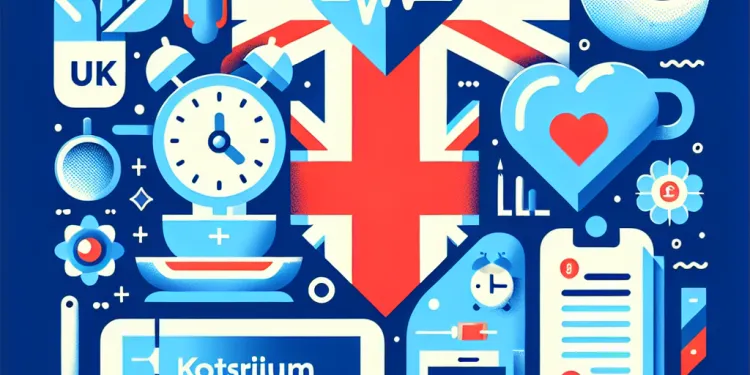
Find Help
More Items From Ergsy search
-
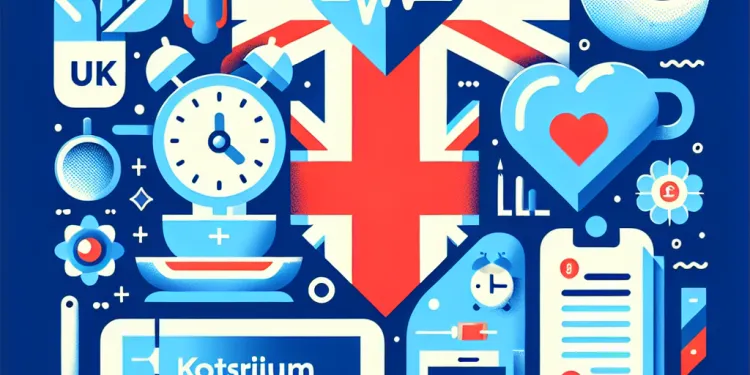
What is the role of potassium in managing blood pressure?
Relevance: 100%
-
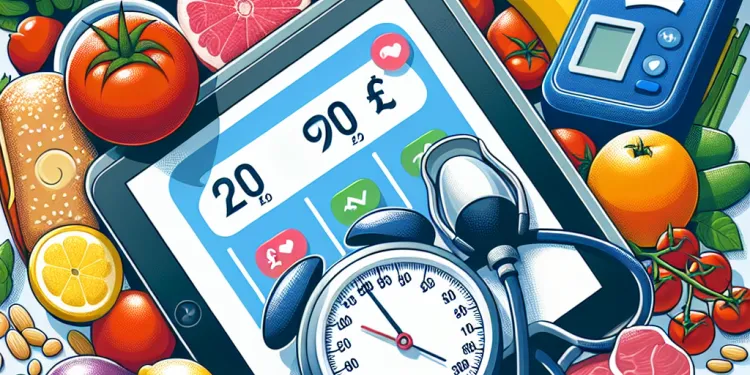
How does diet affect blood pressure?
Relevance: 61%
-
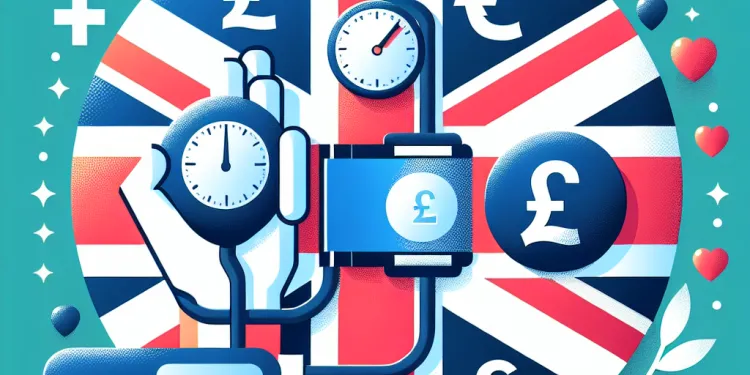
What is high blood pressure?
Relevance: 54%
-

Is green tea a better alternative to coffee for blood pressure management?
Relevance: 52%
-
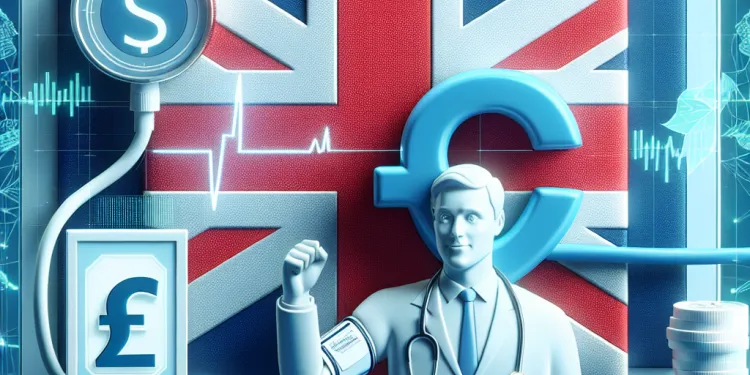
Can high blood pressure be prevented?
Relevance: 51%
-
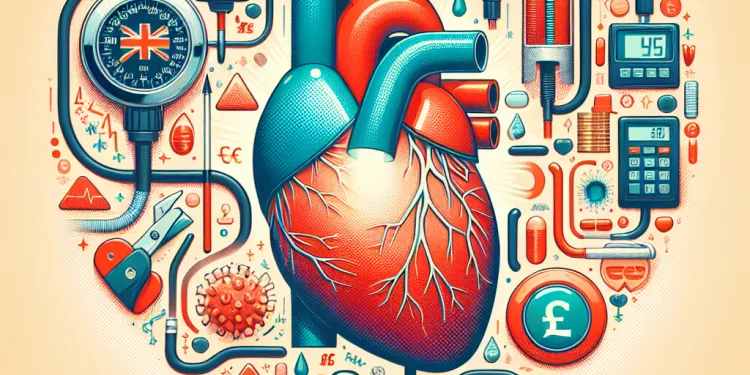
How can high blood pressure be treated?
Relevance: 51%
-
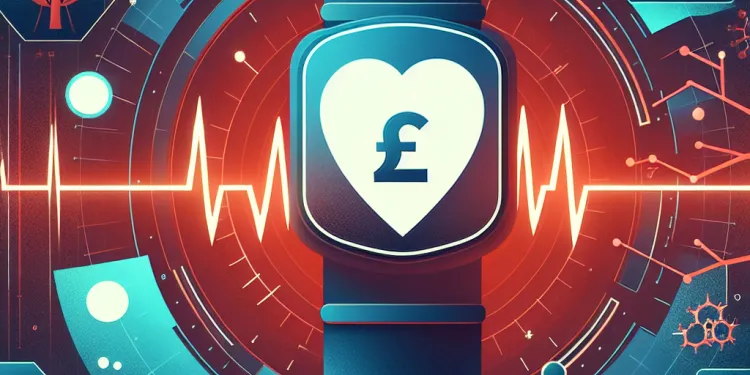
What causes high blood pressure?
Relevance: 48%
-
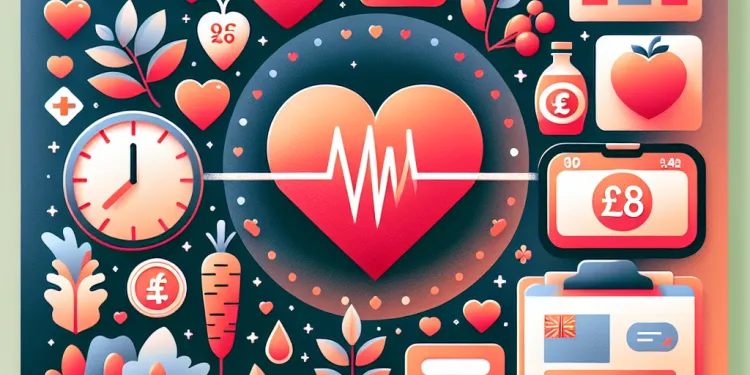
What lifestyle changes can lower blood pressure?
Relevance: 48%
-

Can stress cause high blood pressure?
Relevance: 48%
-

Seven Reaasons For Measuring blood pressure
Relevance: 46%
-
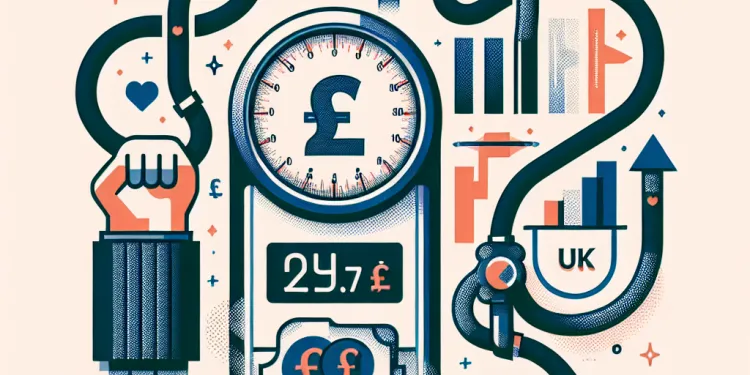
How is high blood pressure diagnosed?
Relevance: 45%
-
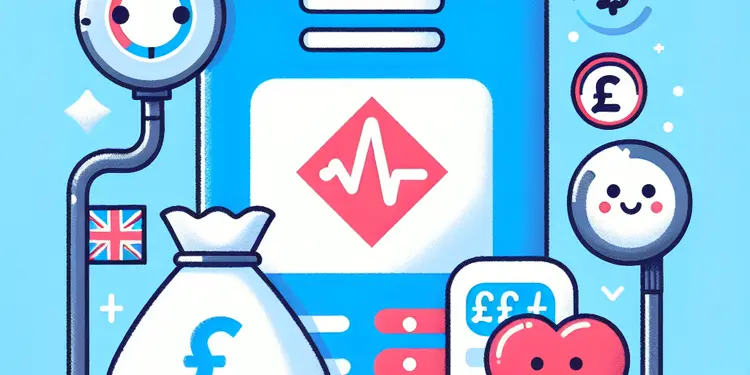
How does salt impact blood pressure?
Relevance: 45%
-
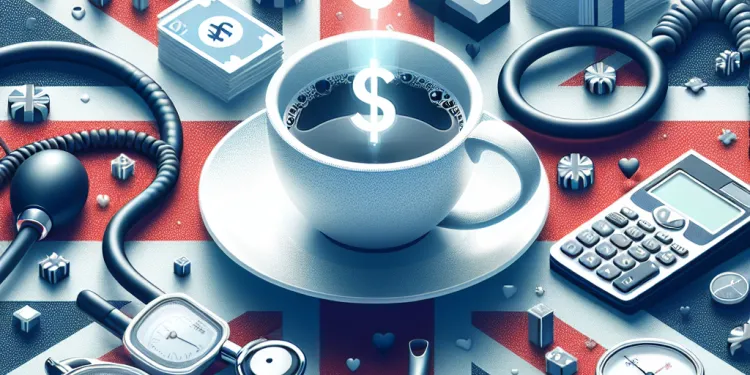
Does caffeine affect blood pressure?
Relevance: 44%
-
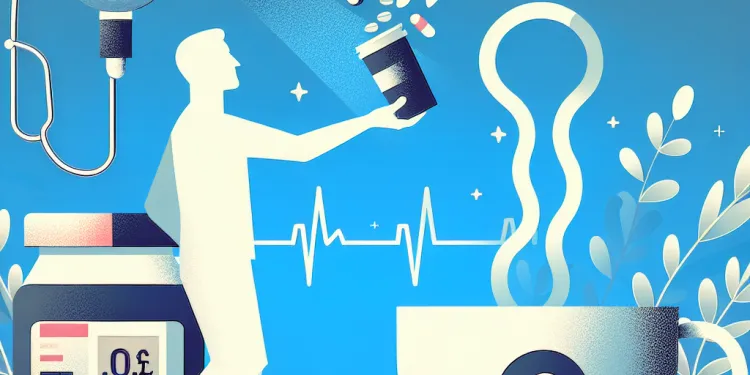
Is it safe to take blood pressure medication with coffee?
Relevance: 44%
-
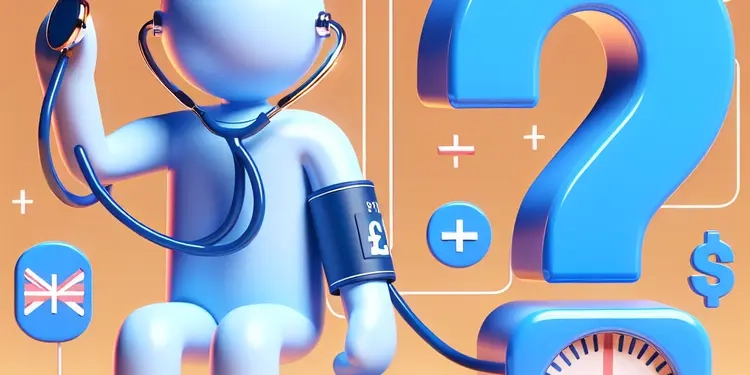
Should I test my child for high blood pressure?
Relevance: 44%
-

What are the risks of having high blood pressure?
Relevance: 43%
-
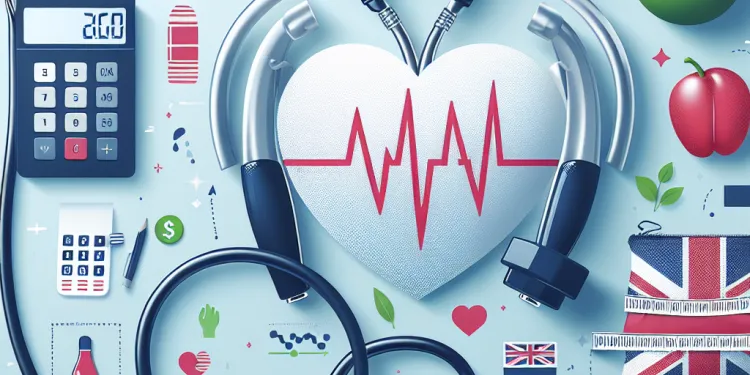
Can weight loss help reduce high blood pressure?
Relevance: 43%
-
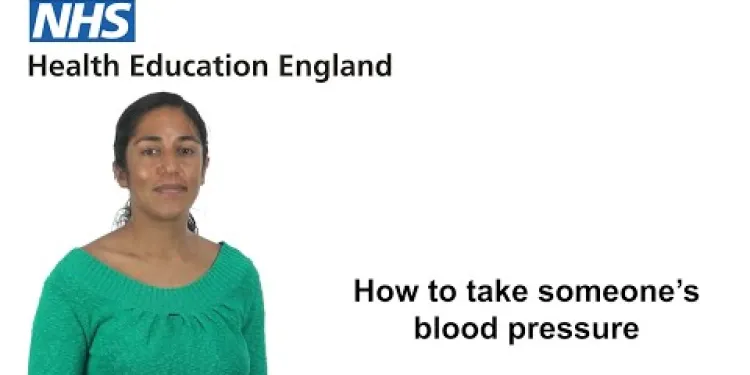
How to take someone's blood pressure
Relevance: 43%
-
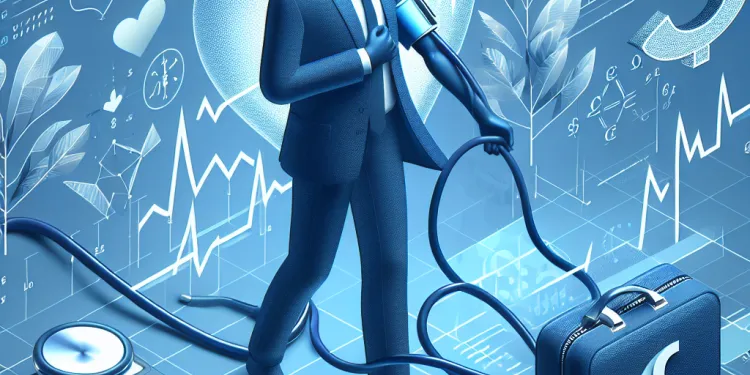
Why is high blood pressure called a 'silent killer'?
Relevance: 43%
-
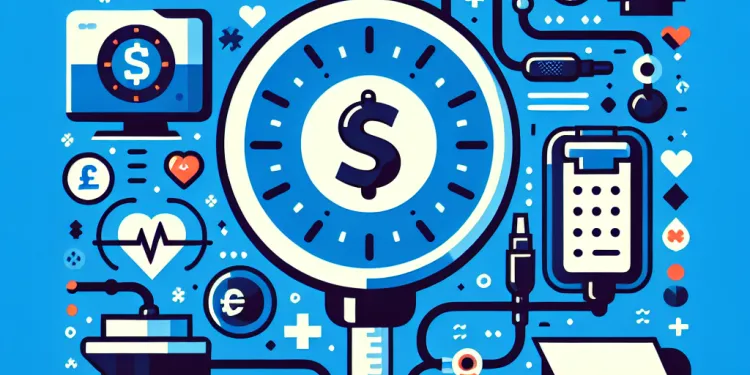
How do medications help control high blood pressure?
Relevance: 42%
-
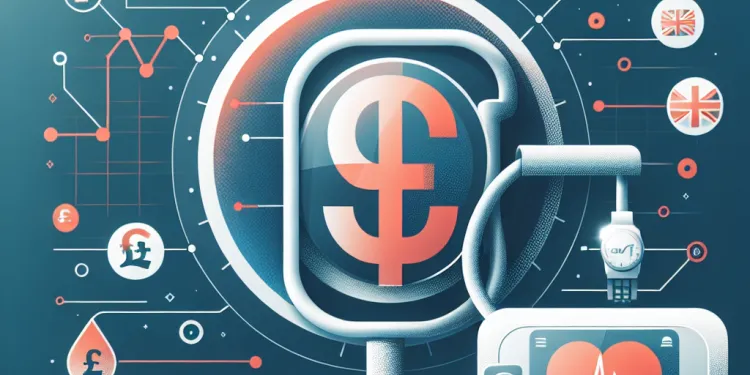
How often should I check my blood pressure?
Relevance: 42%
-

How does caffeine affect blood pressure?
Relevance: 42%
-
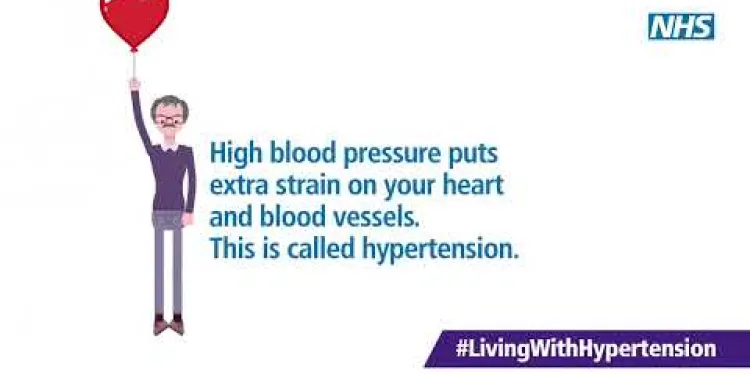
Blood pressure too high? Living with hypertension animation
Relevance: 42%
-
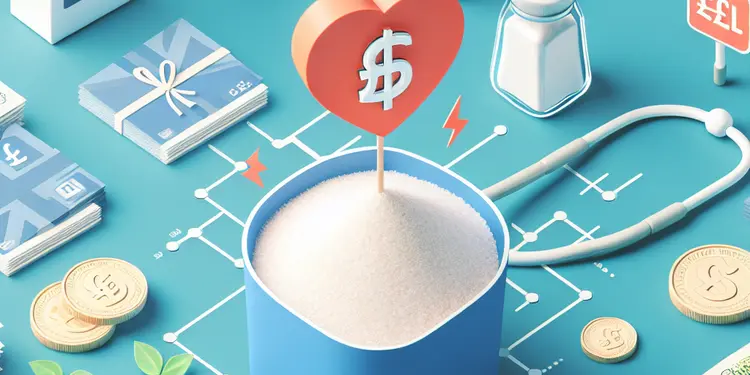
What is the ideal salt intake for someone with high blood pressure?
Relevance: 41%
-
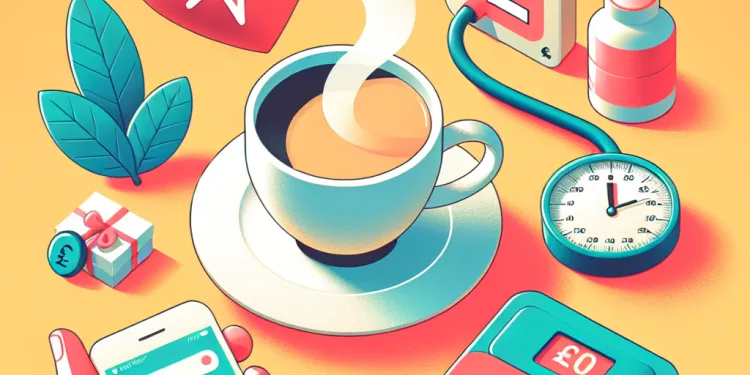
Is Your Morning Coffee a Risk Factor for High Blood Pressure?
Relevance: 41%
-

Can decaffeinated coffee affect blood pressure?
Relevance: 41%
-
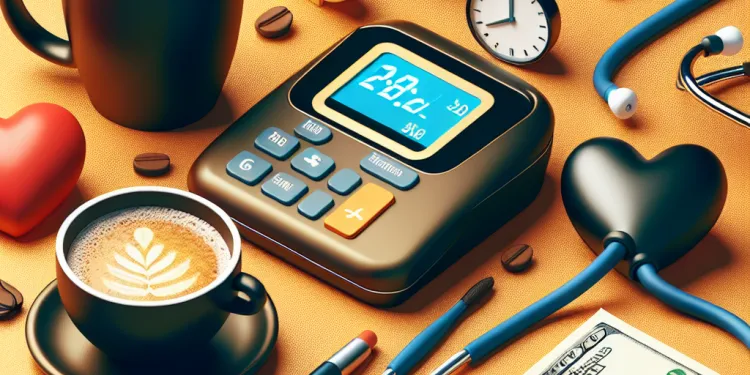
Should people with high blood pressure avoid coffee entirely?
Relevance: 40%
-

How can one minimize the impact of coffee on blood pressure?
Relevance: 40%
-
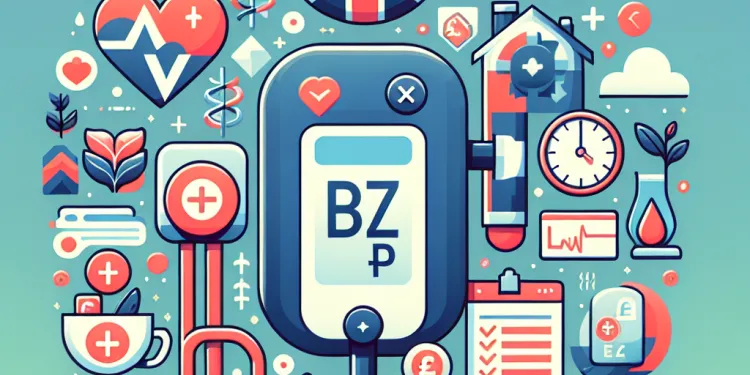
Can high blood pressure lead to other health problems?
Relevance: 40%
-

Are there any other factors in coffee that may affect blood pressure?
Relevance: 39%
-
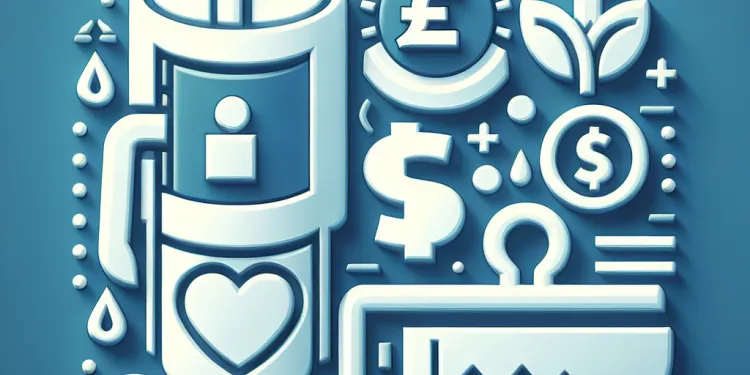
How much caffeine is generally considered safe for people with high blood pressure?
Relevance: 39%
-

How soon after drinking coffee can blood pressure be affected?
Relevance: 38%
-

Is there a specific time of day when coffee has the most impact on blood pressure?
Relevance: 38%
-

Does genetic makeup affect how coffee impacts blood pressure?
Relevance: 37%
-
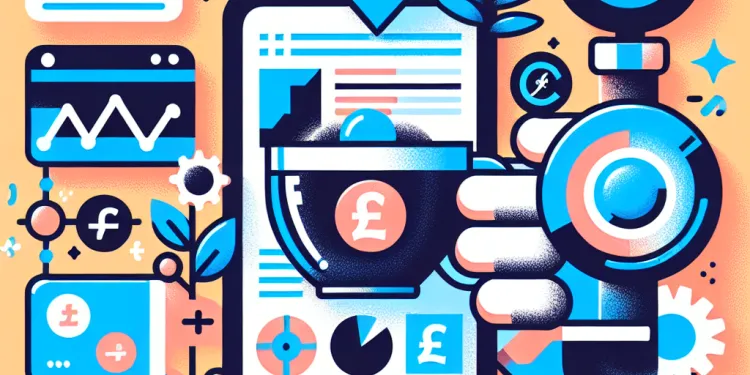
How does regular caffeine consumption impact tolerance and blood pressure?
Relevance: 37%
-
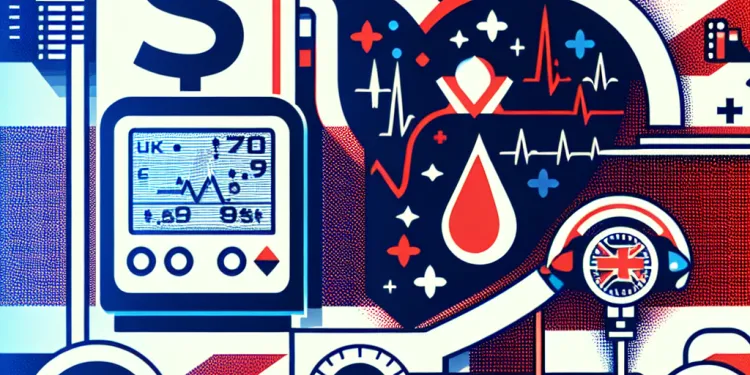
Is high blood pressure hereditary?
Relevance: 36%
-

Does drinking coffee every morning increase the risk of developing high blood pressure?
Relevance: 36%
-
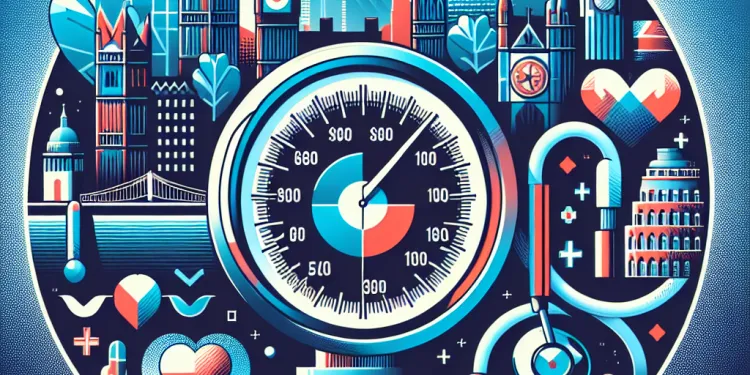
What are normal blood pressure ranges?
Relevance: 34%
-
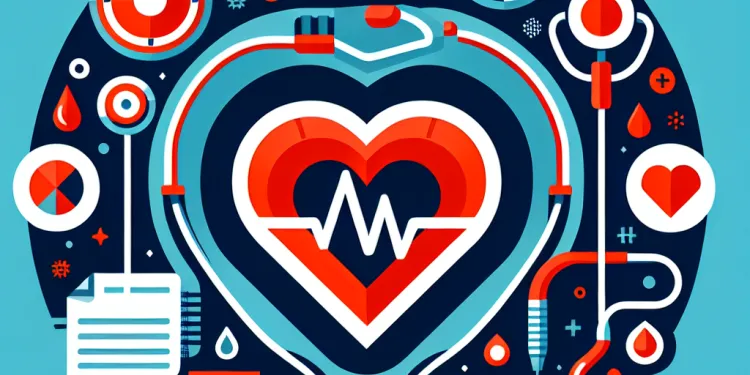
What are the symptoms of high blood pressure?
Relevance: 34%
-

What are the symptoms of caffeine-induced high blood pressure?
Relevance: 32%
The Importance of Potassium in Blood Pressure Management
Potassium is an essential mineral that plays a crucial role in various bodily functions, including the management of blood pressure. For individuals in the UK and around the world, maintaining a balanced intake of potassium is vital for cardiovascular health. Potassium helps regulate the body's fluid balance, nerve signals, and muscle contractions, all of which contribute to maintaining healthy blood pressure levels.
How Potassium Helps Regulate Blood Pressure
Potassium helps manage blood pressure by counteracting the effects of sodium. High sodium intake can lead to increased blood pressure levels, as it causes the body to retain water, thereby increasing the volume of blood and the pressure on blood vessel walls. Potassium, on the other hand, helps the kidneys excrete excess sodium through urine. This reduction in sodium levels can lead to lower blood pressure.
Moreover, potassium eases tension in the blood vessel walls, which also helps to lower blood pressure. By aiding in the relaxation of blood vessels, potassium reduces the pressure against which the heart must pump blood. This action is essential for preventing hypertension, a condition characterized by persistently high blood pressure which increases the risk of heart disease and stroke.
Recommended Potassium Intake
For UK adults, the recommended daily intake of potassium is approximately 3,500 milligrams. A balanced diet can typically provide an adequate amount of potassium. Foods rich in potassium include bananas, oranges, potatoes, spinach, and nuts. By consuming these foods regularly, individuals can support healthy blood pressure levels.
It is important to note that while potassium is beneficial, excessive intake through supplements can be harmful, particularly for individuals with kidney disease or those taking certain medications. Therefore, it's advisable to consult with a healthcare professional before making significant changes to potassium intake.
Integrating Potassium-Rich Foods into Your Diet
Incorporating potassium-rich foods into your diet can be straightforward and delicious. For example, adding bananas to your breakfast, snacking on nuts, or including a side of leafy greens with your meals can boost your potassium intake. Additionally, substituting high-sodium processed foods with fresh produce and whole grains can further enhance your dietary potassium levels while reducing sodium consumption.
As part of a holistic approach to managing blood pressure, maintaining a balanced diet rich in potassium is crucial. This diet, alongside regular physical activity and stress management, can help maintain optimal blood pressure levels and promote overall cardiovascular health.
Conclusion
Overall, potassium plays a vital role in blood pressure management due to its ability to regulate sodium levels and relax blood vessels. For UK residents aiming to support heart health and prevent hypertension, ensuring an adequate intake of potassium through a balanced diet is an effective strategy. Working closely with healthcare providers to monitor and manage dietary intake can lead to better health outcomes and improved quality of life.
Why Potassium is Important for Blood Pressure
Potassium is a very important mineral that helps our bodies work well. It helps keep blood pressure healthy. Having the right amount of potassium is good for your heart. Potassium helps balance fluids in our bodies, sends signals through nerves, and helps muscles move. All these things help keep blood pressure normal.
How Potassium Helps with Blood Pressure
Potassium helps keep blood pressure in check by working against salt (sodium). A lot of salt can raise blood pressure because it makes the body hold onto water. This makes the blood volume higher, which raises pressure. Potassium helps the kidneys get rid of extra salt through urine. Less salt can mean lower blood pressure.
Potassium also helps relax blood vessel walls, lowering blood pressure. Relaxed vessels mean the heart doesn't have to work as hard to pump blood. This helps prevent high blood pressure, which increases the risk of heart disease and stroke.
How Much Potassium You Need
Adults in the UK should aim for about 3,500 milligrams of potassium each day. Eating a balanced diet can help you get enough potassium. Foods with a lot of potassium are bananas, oranges, potatoes, spinach, and nuts. Eating these foods regularly can help keep your blood pressure healthy.
While potassium is good, too much from supplements can be harmful, especially for people with kidney problems or those on certain medicines. Talk to a doctor before changing how much potassium you take.
Adding Potassium-Rich Foods to Your Diet
It's easy and tasty to eat more potassium-rich foods. You can add bananas to your breakfast, snack on nuts, or have leafy greens with your meals. Also, eating less salty processed foods and more fresh foods can boost your potassium and lower sodium intake.
To help manage blood pressure well, eat a balanced diet with lots of potassium. Exercise and managing stress are also important for keeping blood pressure in a healthy range and for heart health.
Conclusion
In summary, potassium is key to controlling blood pressure. It helps balance salt and relaxes blood vessels. For people in the UK who want to keep their hearts healthy and avoid high blood pressure, eating enough potassium is important. Working with healthcare providers to manage your diet can lead to better health and a happier life.
Frequently Asked Questions
What is the role of potassium in managing blood pressure?
Potassium helps to manage blood pressure by balancing out the negative effects of sodium and helping blood vessels relax.
How does potassium help lower blood pressure?
Potassium lowers blood pressure by helping the body get rid of excess sodium and relaxing blood vessel walls.
Can increasing potassium intake improve blood pressure control?
Yes, increasing potassium intake can help improve blood pressure control, especially in those with high sodium intake.
What are good dietary sources of potassium for blood pressure management?
Bananas, oranges, potatoes, spinach, and dairy products are good dietary sources of potassium.
How much potassium should I consume daily to help manage blood pressure?
The recommended daily intake of potassium is about 2,500 to 3,000 mg for healthy adults, but specific needs can vary.
Is potassium alone enough to control blood pressure effectively?
No, while potassium plays an important role, overall diet, lifestyle, and medication if needed, are crucial for controlling blood pressure.
Can potassium supplements be used to manage blood pressure?
Potassium supplements may be used under medical supervision, but it's best to get potassium from dietary sources.
What are the symptoms of low potassium affecting blood pressure?
Symptoms of low potassium can include muscle weakness, fatigue, and elevated blood pressure.
What role does sodium play in blood pressure management compared to potassium?
Sodium tends to increase blood pressure by retaining water, while potassium helps to lower it by opposing sodium's effects.
Can potassium intake have any adverse effects on blood pressure?
Excessive potassium intake can lead to hyperkalemia, which may have negative effects, especially in individuals with kidney issues.
How does potassium interact with antihypertensive medications?
Potassium can enhance the effectiveness of certain antihypertensive medications, but interactions should be monitored by a physician.
Can children benefit from potassium for blood pressure management?
Adequate potassium intake is important for all ages, including children, for maintaining healthy blood pressure.
How does dehydration affect potassium levels and blood pressure?
Dehydration can lead to an imbalance in electrolytes, affecting both potassium levels and blood pressure control.
Are there any specific conditions where potassium intake should be monitored closely?
Conditions such as kidney disease require careful monitoring of potassium intake to prevent hyperkalemia.
Can physical activity influence how potassium affects blood pressure?
Yes, regular physical activity can enhance the beneficial effects of potassium on blood pressure.
What is the relationship between potassium and magnesium in blood pressure regulation?
Both potassium and magnesium play roles in relaxing blood vessels and can work together to support healthy blood pressure.
Can alcohol consumption impact the effectiveness of potassium in blood pressure management?
Excessive alcohol consumption can negate the blood pressure-lowering effects of potassium.
What role do processed foods play in potassium and blood pressure management?
Processed foods often contain high sodium and low potassium, which can contribute to higher blood pressure.
Is there a connection between potassium intake and stress-related blood pressure changes?
Potassium can help buffer the effects of stress on blood pressure by supporting vascular health.
How can I ensure a balanced potassium intake for blood pressure health?
A balanced diet rich in fruits, vegetables, and whole foods, while limiting processed foods, can ensure adequate potassium intake.
What does potassium do to help control blood pressure?
Potassium is a mineral in some foods. It helps keep blood pressure healthy. Eating foods with potassium can help you feel better.
Here are some foods that have potassium:
- Bananas
- Oranges
- Spinach
- Sweet potatoes
Tips to help you:
- Talk to a doctor or nurse.
- Use a food chart to see which foods have potassium.
- Ask someone to help you pick foods with potassium.
Potassium is a mineral that helps keep your blood pressure healthy. It does this by balancing the bad effects of salt in your body and helping your blood vessels to relax.
How does potassium help lower blood pressure?
Potassium is a nutrient in food. It helps keep your heart healthy.
Blood pressure is how hard your blood pushes against your blood vessels (tubes that carry blood in your body). If blood pressure is too high, it can be bad for your heart.
Potassium helps by balancing salt in your body. Too much salt can make blood pressure go up. Potassium helps get rid of extra salt. This can help lower blood pressure.
Eat foods with potassium, like bananas and potatoes, to help your heart.
Use tools like picture charts or videos to learn more. Ask a doctor or a helper if you need support.
Potassium helps keep your blood pressure healthy. It does this by getting rid of extra salt in your body and making your blood vessels relax.
Can eating more potassium help control blood pressure?
Yes, eating more foods with potassium can help control blood pressure. This is especially helpful for people who eat a lot of salty foods.
Here are some things that can help:
- Eat foods like bananas, oranges, and spinach. They have lots of potassium.
- Try to eat less salty foods.
- Use apps or charts to track what you eat. This helps you see how much potassium and salt you are getting.
What foods have potassium to help blood pressure?
Here are some foods that have lots of potassium:
- Bananas
- Oranges
- Potatoes
- Spinach
- Milk products like cheese and yogurt
If you find reading hard, try using audiobooks. You can also ask someone to read with you. They can help you understand new words. You can also use a tool that reads the text out loud for you.
How much potassium do I need each day to help control my blood pressure?
The amount of potassium you should have every day is around 2,500 to 3,000 mg if you are a healthy grown-up. But, some people might need a different amount.
Can just eating potassium lower your blood pressure?
Blood pressure is how hard your heart pushes blood around your body.
Potassium is in some foods like bananas and potatoes. It can help lower blood pressure.
But, just potassium might not be enough. You also need to:
- Eat healthy foods
- Exercise regularly
- Drink less salt
- See your doctor
These steps help keep your blood pressure healthy.
No, potassium is important, but eating healthy food, having a good lifestyle, and taking medicine if needed are key for keeping blood pressure healthy.
Can taking potassium pills help control blood pressure?
It is okay to take potassium pills if the doctor says it is safe, but it is better to eat foods with potassium in them.
What happens when low potassium changes blood pressure?
Low potassium can make you feel weak or tired. It can also make your muscles cramp. When potassium is low, your heart might not work well.
This can make your blood pressure go up. Blood pressure is how hard your blood pushes against your veins.
Ask a doctor if you feel weak, tired, or have cramps. Use pictures or videos to learn more about potassium and blood pressure. A friend or family member can help too.
If you don't have enough potassium, you might feel weak, tired, or have high blood pressure.
How do salt and potassium affect blood pressure?
Sodium is another word for salt. Eating too much salt can raise your blood pressure.
Potassium is found in fruits and vegetables. It helps keep your blood pressure healthy.
To keep your blood pressure good, try to eat less salt and more fruits and vegetables.
You can use tools like food apps to track your salt and potassium intake. Talking to a doctor can also help you.
Sodium is a type of salt. It can make blood pressure go up because it makes the body keep more water. Potassium is good for blood pressure. It helps bring it down by stopping sodium from doing its job.
Can eating too much potassium be bad for blood pressure?
Potassium is in foods like bananas and potatoes. It is good for our body. But too much potassium can be harmful.
If you have too much potassium, it can make your blood pressure go up or down. It is important to eat the right amount.
Here are some tips:
- Eat a balanced diet with fruits and vegetables.
- Talk to a doctor if you are worried about your blood pressure.
- Use tools like a blood pressure monitor to check your levels.
Having too much potassium can make you sick. This is called hyperkalemia. It is not good for people who have problems with their kidneys.
How does potassium work with blood pressure medicine?
Potassium is a mineral in our body. It helps keep our heart and muscles healthy.
Blood pressure medicine is taken to lower high blood pressure. This medicine helps the heart, too.
When you take blood pressure medicine, potassium can help it work better. But sometimes, too much potassium is not good. It's important to eat the right amount.
If you're not sure, ask a doctor or a nurse. They can help you understand more.
You can also use picture charts to see how much potassium is in foods you eat.
Potassium can help some blood pressure medicines work better. But, a doctor should check if they work well together.
Can potassium help kids with their blood pressure?
Getting enough potassium is important. It helps keep blood pressure healthy. This is important for everyone, even kids.
What happens to potassium and blood pressure when you don't drink enough water?
When you don't drink enough water, it is called dehydration. Dehydration can change how your body works.
It can make the level of potassium in your body go down. Potassium is important for your muscles and heart.
Dehydration can also change your blood pressure. Blood pressure is how hard your blood pushes inside your veins.
To stay healthy, it is important to drink enough water every day. You can use reminders to help you drink water at regular times. A water bottle with markings can help you remember how much to drink.
When you don't drink enough water, it can make your body’s balance of important salts go wrong. This can change your potassium levels and blood pressure.
When should you watch how much potassium you eat?
Sometimes, you need to be careful about eating potassium. Potassium is in foods like bananas and potatoes. Here are times to be careful:
- Kidney Problems: If your kidneys are not working well, talk to a doctor about potassium.
- Heart Issues: If you have heart problems, you might need to watch your potassium.
- Medicine: Some medicines mean you need to eat less potassium. Ask your doctor!
Helpful tools: Use pictures or charts to remember which foods have potassium. Ask someone you trust to help you plan meals.
If your kidneys are not healthy, you have to be careful with how much potassium you eat. This will help you avoid having too much potassium, which can make you sick.
Can moving your body change how potassium helps your heart?
Yes, doing exercise regularly can help potassium make your blood pressure better.
How do potassium and magnesium help control blood pressure?
Potassium and magnesium are important for keeping blood pressure healthy.
Potassium: This helps your muscles, including your heart, work well. It helps blood vessels relax, which can lower blood pressure.
Magnesium: This is important for muscles and nerves. It helps keep blood pressure normal by helping blood vessels stay relaxed.
To help understand better, you can:
- Use pictures or drawings to show how potassium and magnesium work in the body.
- Watch a simple video about how blood pressure works.
- Ask someone to help explain with easy words.
Potassium and magnesium help the blood vessels relax. This can help keep blood pressure healthy.
Can drinking alcohol affect how well potassium helps control blood pressure?
Drinking alcohol might make potassium less helpful for controlling blood pressure. It's important to talk to a doctor or nurse about drinking alcohol if you are trying to manage your blood pressure. They can give you advice on what to do.
Drinking too much alcohol can stop potassium from helping to lower blood pressure.
How do processed foods affect potassium and blood pressure?
Processed foods often have salt, which can make blood pressure go up.
Some processed foods have less potassium. Potassium helps keep blood pressure healthy.
To help manage blood pressure, eat fresh fruits and vegetables. They have lots of potassium.
Use tools like food labels to check salt levels in your food.
Processed foods have a lot of salt and not much potassium. This can make your blood pressure go up.
Can eating foods with potassium help when you feel stressed and your blood pressure changes?
Potassium is good for your heart. It helps keep your blood pressure healthy, even when you feel stressed.
How can I keep my potassium levels healthy for my blood pressure?
Here’s how you can keep your potassium levels just right:
- Eat more fruits and vegetables like bananas, oranges, and spinach.
- Drink plenty of water.
- Try to eat less salty food.
- Ask a doctor if you need a potassium pill.
Remember, it’s important for your blood pressure to have just the right amount of potassium. Using a food diary can help you track your potassium intake. Also, apps that track nutrients can be really helpful. Always talk to a doctor for advice that’s right for you.
Eating a mix of fruits, vegetables, and whole foods is good for you. Try to eat fewer processed foods. This can help you get enough potassium, which is good for your body.
Useful Links
This website offers general information and is not a substitute for professional advice.
Always seek guidance from qualified professionals.
If you have any medical concerns or need urgent help, contact a healthcare professional or emergency services immediately.
- Ergsy carfully checks the information in the videos we provide here.
- Videos shown by Youtube after a video has completed, have NOT been reviewed by ERGSY.
- To view, click the arrow in centre of video.
- Most of the videos you find here will have subtitles and/or closed captions available.
- You may need to turn these on, and choose your preferred language.
- Go to the video you'd like to watch.
- If closed captions (CC) are available, settings will be visible on the bottom right of the video player.
- To turn on Captions, click settings .
- To turn off Captions, click settings again.
More Items From Ergsy search
-

What is the role of potassium in managing blood pressure?
Relevance: 100%
-

How does diet affect blood pressure?
Relevance: 61%
-

What is high blood pressure?
Relevance: 54%
-

Is green tea a better alternative to coffee for blood pressure management?
Relevance: 52%
-

Can high blood pressure be prevented?
Relevance: 51%
-

How can high blood pressure be treated?
Relevance: 51%
-

What causes high blood pressure?
Relevance: 48%
-

What lifestyle changes can lower blood pressure?
Relevance: 48%
-

Can stress cause high blood pressure?
Relevance: 48%
-

Seven Reaasons For Measuring blood pressure
Relevance: 46%
-

How is high blood pressure diagnosed?
Relevance: 45%
-

How does salt impact blood pressure?
Relevance: 45%
-

Does caffeine affect blood pressure?
Relevance: 44%
-

Is it safe to take blood pressure medication with coffee?
Relevance: 44%
-

Should I test my child for high blood pressure?
Relevance: 44%
-

What are the risks of having high blood pressure?
Relevance: 43%
-

Can weight loss help reduce high blood pressure?
Relevance: 43%
-

How to take someone's blood pressure
Relevance: 43%
-

Why is high blood pressure called a 'silent killer'?
Relevance: 43%
-

How do medications help control high blood pressure?
Relevance: 42%
-

How often should I check my blood pressure?
Relevance: 42%
-

How does caffeine affect blood pressure?
Relevance: 42%
-

Blood pressure too high? Living with hypertension animation
Relevance: 42%
-

What is the ideal salt intake for someone with high blood pressure?
Relevance: 41%
-

Is Your Morning Coffee a Risk Factor for High Blood Pressure?
Relevance: 41%
-

Can decaffeinated coffee affect blood pressure?
Relevance: 41%
-

Should people with high blood pressure avoid coffee entirely?
Relevance: 40%
-

How can one minimize the impact of coffee on blood pressure?
Relevance: 40%
-

Can high blood pressure lead to other health problems?
Relevance: 40%
-

Are there any other factors in coffee that may affect blood pressure?
Relevance: 39%
-

How much caffeine is generally considered safe for people with high blood pressure?
Relevance: 39%
-

How soon after drinking coffee can blood pressure be affected?
Relevance: 38%
-

Is there a specific time of day when coffee has the most impact on blood pressure?
Relevance: 38%
-

Does genetic makeup affect how coffee impacts blood pressure?
Relevance: 37%
-

How does regular caffeine consumption impact tolerance and blood pressure?
Relevance: 37%
-

Is high blood pressure hereditary?
Relevance: 36%
-

Does drinking coffee every morning increase the risk of developing high blood pressure?
Relevance: 36%
-

What are normal blood pressure ranges?
Relevance: 34%
-

What are the symptoms of high blood pressure?
Relevance: 34%
-

What are the symptoms of caffeine-induced high blood pressure?
Relevance: 32%


